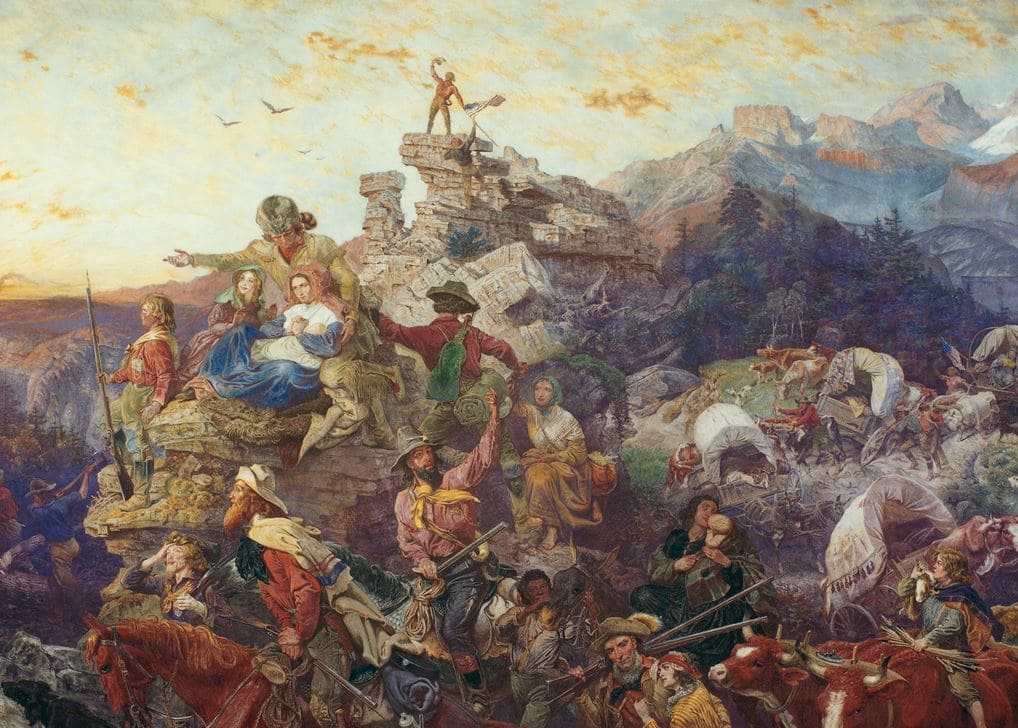Introduction
Every major revolution in history has been founded on the continual efforts of people who believed in it. Ideologies were passed down from one generation to another to perpetuate them alive, or their primary objective was continuously redefined to maintain continuous backing. In the United States (US) history, it just took two lines in a magazine editorial to establish the country’s status as a worldwide superpower. The term ‘Manifest Destiny,’ invented by a journalist, John L. O’Sullivan, referred to the notion that God predestined the US to extend its territory westward and establish democracy. Manifest Destiny influenced territorial expansion in the US by instilling a sense of superiority, justifying credibility, and fueling population increase to extend and occupy its size across the continent.
Superiority
Because Manifest Destiny emphasized white American supremacy, the philosophy made the US feels better and capable of eliminating other powers, including Indians and Mexicans. In 1846, Sam Houston, being a ruler of the independent Texas Republic, remarked, “‘the Mexicans are no better than the Indians, and I see no reason why we should not go in the same course now, and take their land.”1 The idea motivated the US government to open a war against Mexico over Texas’s expansive assertions of sovereignty. Manifest destiny was a catchphrase throughout the conflict, which was concluded with Guadalupe Hidalgo Treaty, and the US ended up adding five hundred and twenty-five square miles of land since Mexico relinquished all its territorial claims to Texas, forfeiting its area bordering the Pacific Ocean. Learn dsm-5 apa citation for further reading.
1. Carroll P. Kakel, “America’s Farther West: The Trans-Mississippi West, 1815–1890,” A Post-Exceptionalist Perspective on Early American History, (2019): 51, https://doi.org/10.1007/978-3-030-21305-3_4.

Justifying Credibility
Fueled by Manifest Destiny’s alleged God-given entitlement to expand its territories and democratize the society, the US government could easily justify its quest for territorial expansion. For example, the idea of Manifest Destiny was linked to the belief that Anglo Americans were the only people capable of civilizing and productively utilizing the country, and O’Sullivan said in his 1845 article “Annexation” that Mexicans lacked the aptitude to manage California.2 Furthermore, many people believed that annexing some regions to the South and West would solve the slavery problem, which also justified the philosophy of Manifest Destiny seeming Godly and real. Hence, Manifest Destiny was viewed as a common good by many individuals, especially Black Americans, who were mistreated as they thought that the expansion of the US would end slavery.
2. John D. Wilsey, “Our Country Is Destined to Be the Great Nation of Futurity: John L. O’Sullivan’s Manifest Destiny and Christian Nationalism, 1837–1846,” Religions 8, no. 4 (2017): 4, https://doi.org/10.3390/rel8040068.
Fueled Population Increase
Manifest Destiny fueled the movement of more individuals to the West, and citizens were compelled to seek new territory, motivating the American government to purchase land for territorial expansion for the growing population. For example, the Gadsden Purchase, also called the Treaty of La Mesilla, enabled the US to offer Mexico $10 million for territory in current-day southern Arizona and New Mexico, which was initiated in 1854.3 The Gadsden Purchase strengthened the American presence in the Southwest and boosted the region’s growth, ultimately completing the construction of the continental US and satisfying Manifest Destiny. In turn, purchasing the land ensured a passage for the intended Southern Pacific Railroad, which was an integral component of the Transcontinental Railroad’s construction effort facilitating commercial activities, which increasingly made the US stable at initiating its Manifest Destiny ideals.
3. Lindsay Schakenbach Regele, “Industrial Manifest Destiny: American Firearms Manufacturing and Antebellum Expansion,” Business History Review 92, no. 1 (2018): 78, https://doi.org/10.1017/S000768051800034X.
Conclusion
Manifest Destiny ideals powered the US urge for territorial expansion through a series of purchases, treaties, and wars during the nineteenth century. The US, inspired by the idea that Americans had a calling to expand their territory, took advantage of any opportunity to gain more land. Thus, the idea of Manifest Destiny propelled and served to justify the nineteenth-century US territorial expansion.
Bibliography
Kakel, Carroll P. “America’s Farther West: The Trans-Mississippi West, 1815–1890.” A Post Exceptionalist Perspective on Early American History, (2019): 47–66. https://doi.org/10.1007/978-3-030-21305-3_4.
Regele, Lindsay Schakenbach. “Industrial Manifest Destiny: American Firearms Manufacturing and Antebellum Expansion.” Business History Review 92, no. 1 (2018): 57-83. https://doi.org/10.1017/S000768051800034X.
Wilsey, John D. “Our Country Is Destined to Be the Great Nation of Futurity: John L. O’Sullivan’s Manifest Destiny and Christian Nationalism, 1837–1846.” Religions 8, no. 4 (2017): 1–17, https://doi.org/10.3390/rel8040068.


